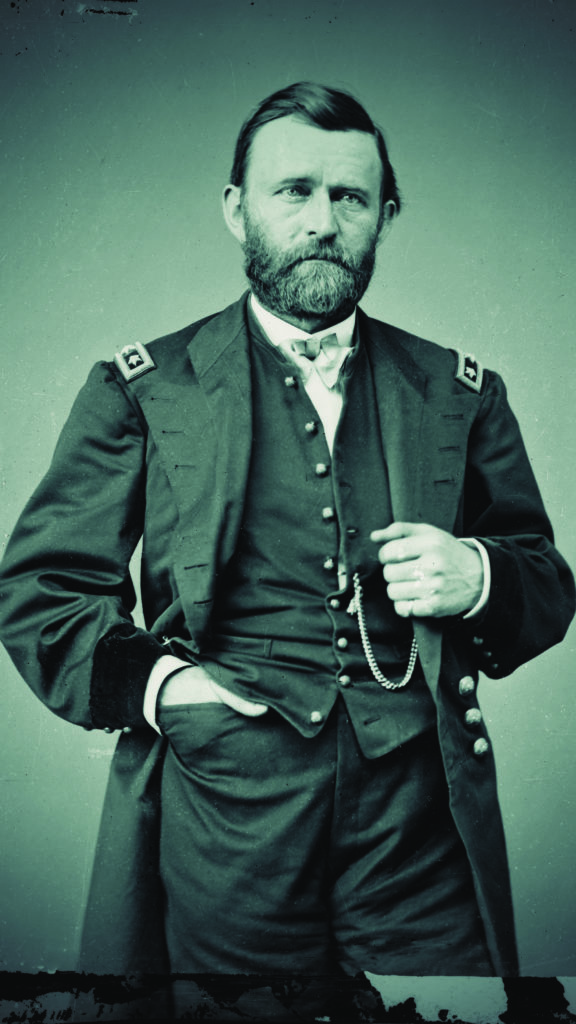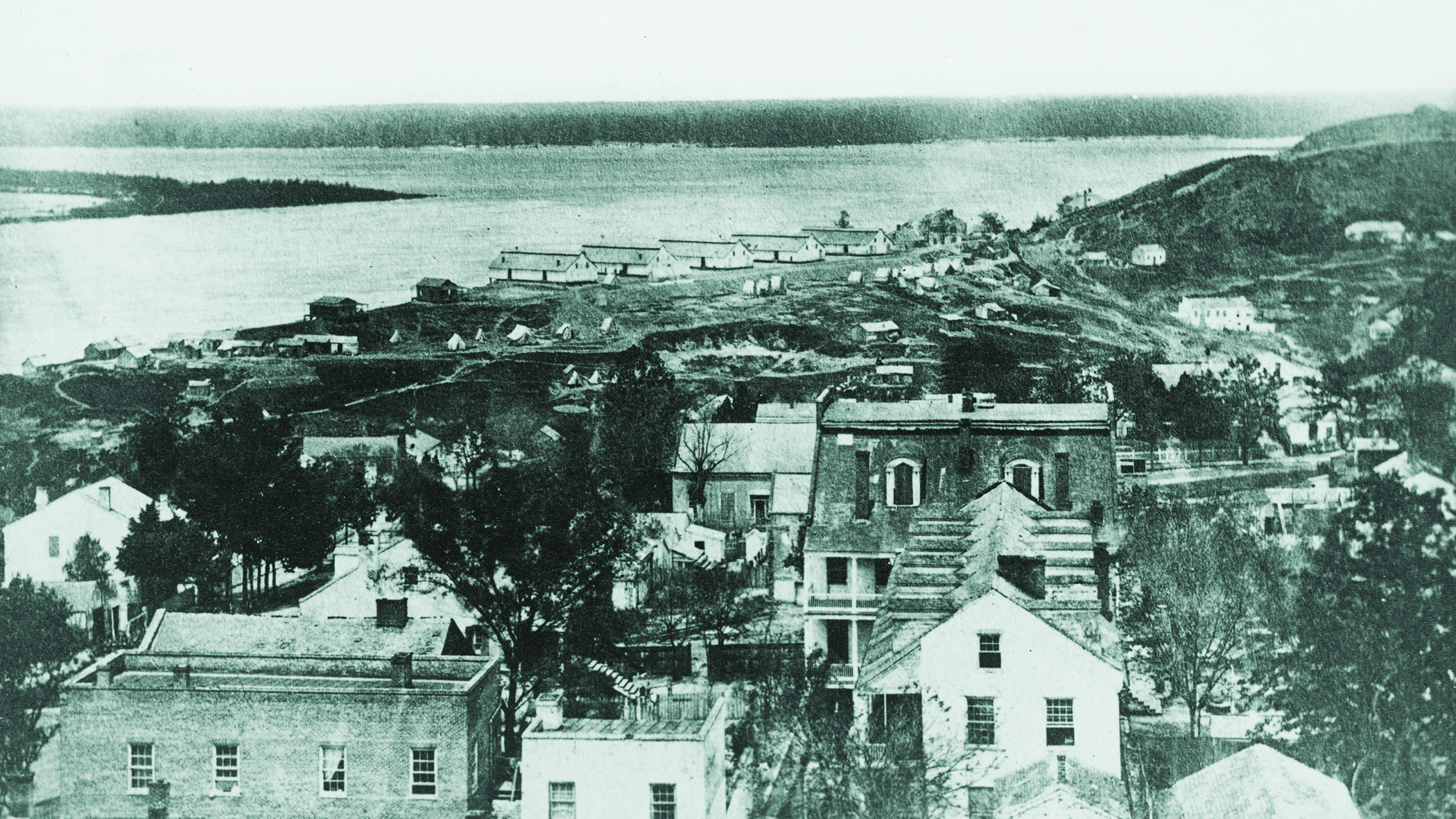In his 10th book, Vicksburg: Grant’s Campaign That Broke the Confederacy, Donald L. Miller incorporates small details such as the first use of synchronized watches in a battle into a sweeping tale of social revolution and the challenges Maj. Gen. Ulysses Grant overcame in his year-long slog to take Vicksburg. When Miller consulted on the campaign with Ed Bearss, former park historian of Vicksburg National Military Park, Bearss told him: “You’re gonna write the best book on Vicksburg. You know why? ’cause you don’t know a damn thing about it.” Vicksburg won three prestigious awards: New York’s Fletcher Pratt Literary Award, the Laney Book Prize, and the Army Historical Foundation’s Distinguished Writing Award.
CWT: This is your first book on the Civil War. Why?

DM: While working as a consultant and writer on the American Experience documentary on Grant, I came to believe that Grant’s Mississippi Valley Campaign was a decisive turning point not only of the Civil War but of all of American history. The campaign changed who we are as a nation. My book isn’t strictly a military history. It’s a war history. It deals with the social and political implications of military action, and most especially with the overthrow of slavery in the Valley.
CWT: You cite an astonishing array of sources and voices.
DM: I visited 62 archives and uncovered well over 1,000 letters from soldiers who were not abolitionists but were eager to liberate slaves in order to destroy the Confederacy’s military economy and punish the South for seceding. Historians of the campaign have largely passed over the social revolution that Grant’s army initiated in the Lower Mississippi Valley. Union soldiers began looting and burning plantations and freeing slaves in violation of Grant’s orders. Grant feared this would lead to a breakdown in army discipline. He was in the business of fighting a war, not engineering social change. But later in the campaign, spurred on by President Lincoln, he saw that liberating slaves was a war-winning policy.
CWT: You credit William Faulkner’s 1936 novel Absalom, Absalom in shaping the scope of your narrative.
DM: In that novel, the character Thomas Sutpen arrives in the Mississippi wilderness with four slaves and eventually becomes a plantation grandee. And I thought that is exactly what was happening in the Mississippi Delta above Vicksburg. That region began to grow quickly in the 1830s with Indian Removal and a cotton boon. And when Sutpen returns after the war, the Yankees have stripped him of everything, and his slaves have run away. This happened all over Mississippi. Historians point to how Grant captured an entire enemy army at Vicksburg, opened the Mississippi River all the way to New Orleans, and split the Confederacy in two, but he did a lot more. His army destroyed the plantation oligarchy in Mississippi, freed more than 100,000 slaves, and put nearly 26,000 African-American males in Union Blue. Slaves participated in their own liberation by taking the enormous risk of running away from their “owners” to the Federal army, where they ran into a lot of mistreatment by racist soldiers. But most slaves in the Deep South would not have been liberated without the presence of the Union Army. As

CWT: You provide many examples of how slaves experienced the campaign.
DM: Working from oral histories conducted with freedmen after the war and from diaries of plantation masters and mistresses, I describe how slaves reached the Union Army and how those who were unable to escape revolted against the system by cutting back on their work, and in some instances, negotiating with plantation mistresses for a better treatment and even for wages. This was the most
fascinating part of my research.
CWT: Talk about the challenges in telling the story of the campaign.
DM: The challenge I set for myself was to write an absorbing story that broke new ground. I try to see the Vicksburg Campaign as the participants—civilians as well as soldiers—did, avoiding what I call “the fallacy of hindsight.” Most high school textbooks are filled with this kind of history by hindsight. They open the discussion of the war with charts showing that the Union was more heavily populated than the Confederacy, had better railroads, a far stronger industrial base, etc. Readers are led to believe that the outcome was foreordained. It wasn’t, of course. Take Vicksburg. Grant failed repeatedly to take the city, made some monumental blunders that could have changed the course of the war. He had enormous resolve, but I honestly believe there were moments when he secretly doubted he could take Vicksburg.
CWT: What did you think of the recent miniseries on Grant?
DM: It was absorbing in places, but there is little about Grant as a military emancipator, and almost nothing about David Dixon Porter and the Mississippi gunboat flotilla. You’re asked to believe that Grant decided on his own to run past the Vicksburg batteries. But he needed the ironclads to do that and had to ask for Porter’s cooperation; he had no authority over him. In his memoirs, Grant notes he couldn’t have taken Vicksburg without the Navy.
CWT: What would you like people to know about Vicksburg:
DM: That it could have turned out differently. In January 1863, when Grant moved from Memphis to the miasmic swamps directly across the river from Vicksburg, it seemed unlikely he would take the city. His and Sherman’s first attempt, in December 1862, collapsed when Sherman’s army was slaughtered in the swamps north of the city, then Rebel cavalry cut Grant’s supply line to Tennessee, forcing him to withdraw from Mississippi. There were calls for Grant’s removal. But Grant did it. And how he did it is one hell of a story.
CWT: In the end, Vicksburg fell because of the siege.
DM: The great irony is that the longer the Confederates held on to the city, the more they lost. There was no army in the immediate vicinity of Vicksburg to prevent Grant’s legions from conducting devastating raids on Vicksburg’s agricultural hinterland. More attention should be focused on this scorched earth campaign. Grant learned how to defeat the South at Vicksburg, and he taught this lesson to Sherman. When Grant goes east in early 1864 to take on Lee, this is how he fought, sending Phil Sheridan into the Shenandoah Valley on annihilating raids of the economy Lee depended upon to sustain his army, which Grant had besieged at Petersburg. Nearly everything Grant did to subdue Vicksburg he did to defeat Lee’s Army of Northern Virginia. I’m going to take this story forward in my next book, focusing on the Grant–Lincoln partnership that brought the war to a close and saved the Union.
This interview appeared in the August 2020 issue of Civil War Times.





